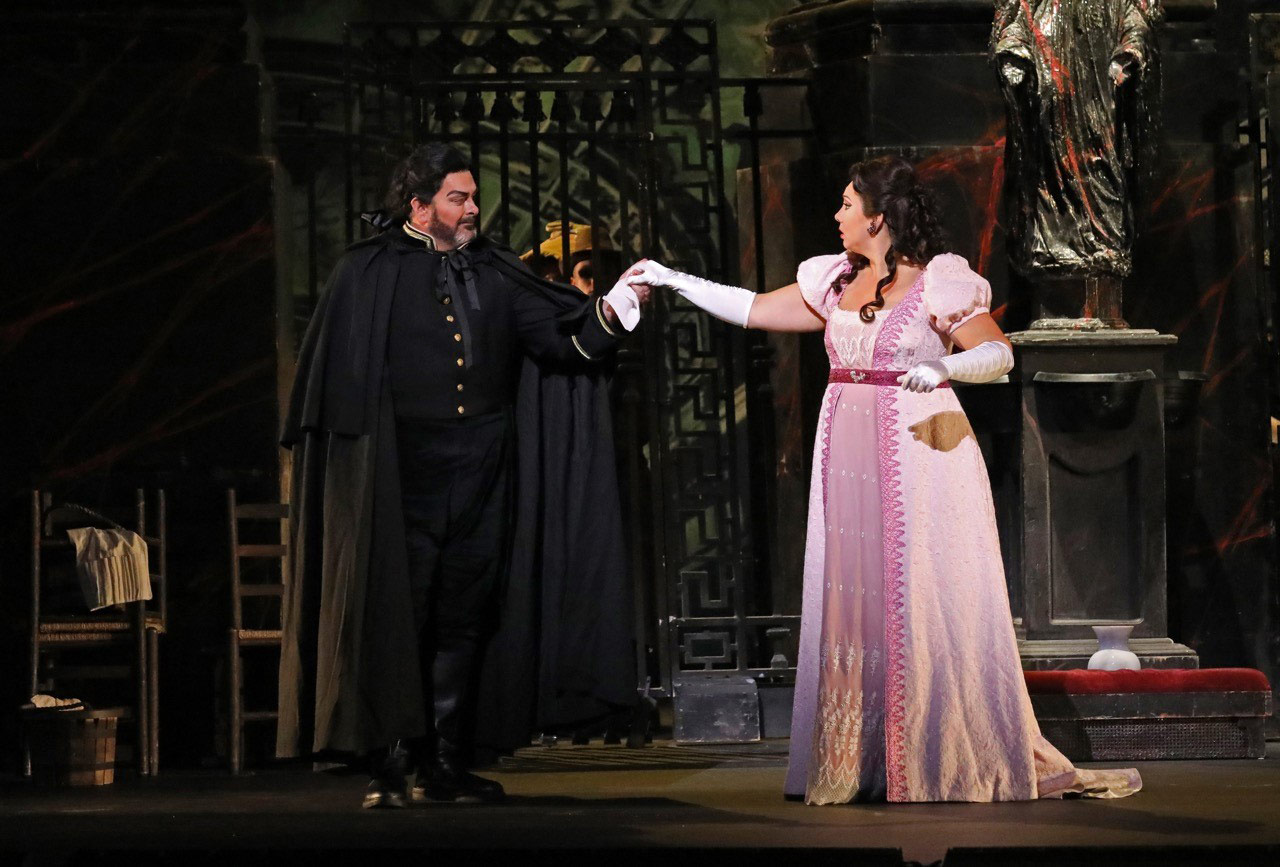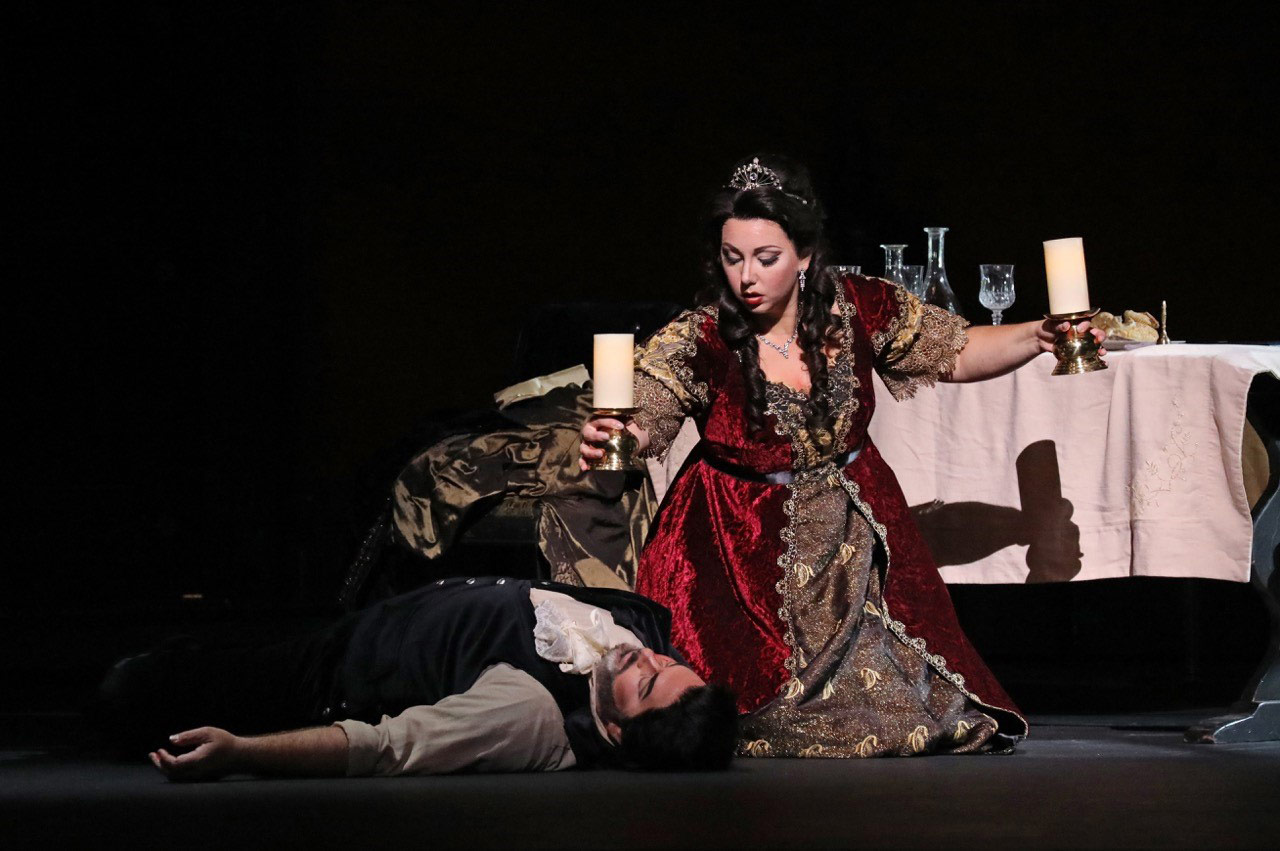
Rowley wins the night in Nashville Opera's Tosca
ReviewMy companion for the evening hadn’t seen Tosca before (or even heard the music!), and quickly read a synopsis in advance (“I get the idea,” she texted me, “Opera war Italy love murder. Papal stuff.”), but a synopsis can’t really prepare one for this opera, can it?
There’s a reason why Tosca is one of the most oft-performed operas in the canon. It’s got everything. While Tosca isn’t quite like pizza – even when it’s bad, it’s still pizza – even if I have criticism, it’s still Tosca. That is the case here, with Nashville Opera’s production, the season opener, directed by John Hoomes. The first question always is “Well, how was the Tosca?” and ours was remarkable. Jennifer Rowley slated to sing the role again at the Met in January, was very clearly the star of the night. As Floria Tosca, Ms. Rowley gets many things so right: her profound and comprehensive interpretation gives Tosca an organic, complex richness. Ms. Rowley’s skill for acting is eclipsed only by her formidable and acutely controlled, exciting voice. The soprano drew me in every time she sang pianissimo, which somehow remained beautiful, even, and round, and I was fully rapt (and like ugly crying with a broken heart) by the end of Ms. Rowley’s exquisite “Vissi d’arte”. If you ever get the chance to see her, absolutely do yourself that kindness.

The stage direction being fairly lackluster seemed to make it difficult for the other singers to portray exactly what they wanted. It seemed like somewhere there was a disconnect between action and intent. Even so, in Scarpia, Weston Hurt brought (somehow, because…Scarpia) humanity to the role. His lush and agile voice helped us feel for Scarpia, in spite of how frankly demented he is – it felt a bit like liking Don Draper – but it is an opera full of contradictions.

John Pickle as Cavaradossi was best in Act III, a highlight being his expressive “E lucevan la stelle”, and the final love duet with Floria Tosca was very lovely. Thomas Leighton and Rafael Porto as Spoletta and Sacristan, respectively, gave sturdy, effective performances.

Conductor Dean Williamson emphasized the gentler, lilting parts of score, rather than the dissonances, perhaps to offset the imposing, mildly frightening sets – the foreshortened construction messed with my depth perception – and didn’t seem to mind one or two out-of-tune violins throughout the third act.
While Ms. Rowley certainly won the night, the production was otherwise solid. The rest of Nashville Opera’s season is contrastingly less-than-traditional, so I look forward to seeing what they’ll bring us next.


Comments